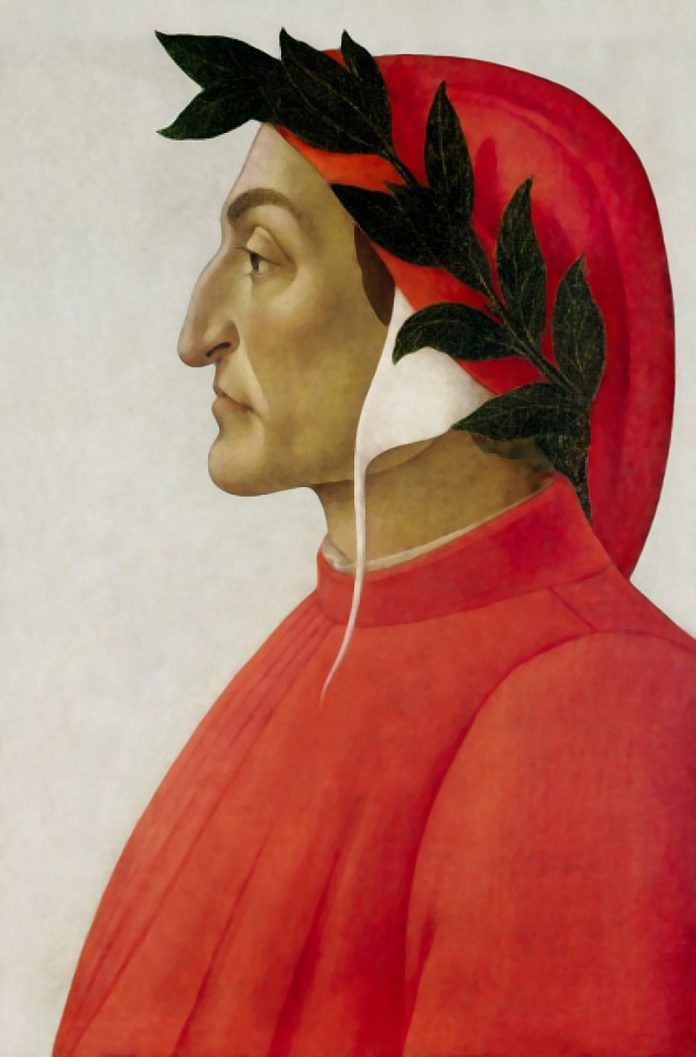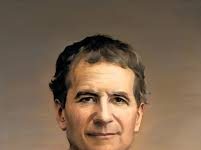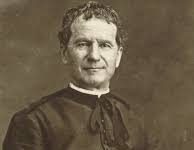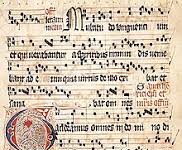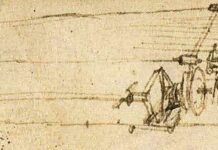Dante Alighieri died 700 years ago today, at the age of 56, on the evening of September 13th, 1321, fittingly the vigil of the feast of the Holy Cross, at Ravenna, exiled from his beloved and native Florence. The inventor, if you will, of the Italian language, his best known work is of course his trilogy of the Divina Commedia, taking the reader on a pilgrimage from the Inferno, through the Purgatorio, and on into the Paradiso, through three sets of 33 cantos of some of the greatest, most sublime and theologically rich poetry ever penned. (Correction! A colleague, who teaches Dante, pointed out that the Inferno actually has 34 cantos, for a grand total of 100 in the whole pilgrimage to the Paradiso)
My own words certainly cannot do the Poet justice. Pope Benedict XV wrote an encyclical on Dante in the 600th anniversary of his death, In Praeclara Summorum (April 30, 1921). The Holy Father’s does not hide his papal opinion in his opening line:
Among the many celebrated geniuses of whom the Catholic faith can boast who have left undying fruits in literature and art especially, besides other fields of learning, and to whom civilization and religion are ever in debt, highest stands the name of Dante Alighieri…
Pope Saint Paul VI followed suit with his own Apostolic Letter on the Florentine poet, Altissimi Cantus, on December 7th, 1965, the same day as the close of the Second Vatican Council – and make of that what you will. The text does not seem to be translated into English – yet, and so the link will take you to the original Latin. A good exercise for you budding classics scholars!
Next step, to try your hand at your own translation of Dante…I did find an on-line Italian-English version, which will, like Virgil, guide you on your way…
Nel mezzo del cammin di nostra vita When I had journeyed half of life’s way
mi ritrovai per una selva oscura I found myself within a shadowed forest
ché la diritta via era smarrita. For I had lost the path that does not stray.

